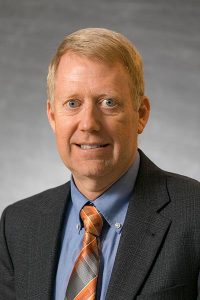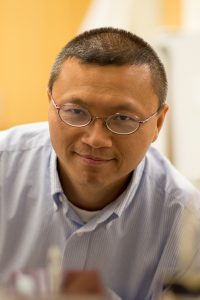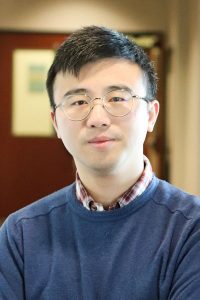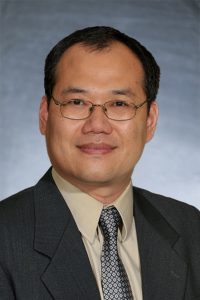Engineering Faculty Receive One UT Collaboration and Innovation Grants
Four Tickle College of Engineering faculty members received One UT Collaboration and Innovation Grants in May. This new grant program promotes UT’s mission in three categories—Educate, Discover, and Connect—by supporting innovative ideas, creating collaborative opportunities, and advancing student success, research, and outreach and engagement.
Engineering recipients were Associate Dean Ozlem Kilic, Professor Leon Tolbert, Professor Qiang He and Assistant Professor Shuai Li, and Professor Xiaopeng Zhao. Collaborating institutions include UT Chattanooga (UTC), the UT Institute of Agriculture (UTIA), the UT Health Science Center (UTHSC), and Oak Ridge National Laboratory (ORNL).
TCE Recipients:
Professor Ozlem Kilic
Associate Dean of Academic and Student Affairs
Collaborating campus: UTC
Kilic earned a grant for her project “One UT, Thousands of STEMs,” under the “Connect” category, which supports ideas and projects that help UT better connect with communities through outreach and engagement, inspiring the next generation of creative thinkers and thought leaders.

Min H. Kao Professor Leon Tolbert Min H. Kao Department of Electrical Engineering and Computer Science Collaborating campus: UTC, ORNL
Tolbert’s proposal, “Balancing Power Router for Distribution Level Power Grid with High Renewable Energy Penetration,” earned a grant in the “Discover” category, aimed to stimulate collaboration that will pursue new research, scholarship, or creative activity of high value to the discipline or disciplines involved.
Tolbert and post-doctoral researcher Yunting Liu will study increased use of solar power in Tennessee by working with researchers at ORNL and UT-Chattanooga to examine how to control inverters, that connect solar panels to the overall grid, to better regulate the voltages and currents in the grid so that it continues to be a resilient and reliable source of electricity.
“The percentage of power generated by renewable energy sources is expected to increase tremendously during the next two decades because of their low cost and relatively lower environmental impacts,” said Tolbert. “However, these new generation sources inherently have more variability, and there is a need to ensure that the power provided by these resources works in concert with the utilities’ electric grids such that loads are still reliably served.”

Professor Qiang He Assistant Professor Shuai Li Department of Civil and Environmental Engineering Collaborating campuses and institutes: UTC, UTHSC, UTIA
He and Li received a grant in the “Discover” category for their proposal entitled “Pathogen Transmission Pathway Identification by Fomite and Behavior Monitoring.”
The objective of this research is to create and test new sensing, computational, and mechanistic tools to characterize the complex interrelationships between human behaviors and fomites, which are inanimate objects that become colonized with microbes.
“If successful, the in-depth understanding acquired from this research can be exploited to develop bio-informed strategies for sustainable management of the built environment,” said He. “With the ability to reduce pathogen exposure, we can have a great impact on public health.”



Professor Xiaopeng Zhao Department of Mechanical, Aerospace, and Biomedical Engineering Collaborating campus: UTC
Two of Zhao’s projects earned One UT grants: “Detection, Care and Treatment of Alzheimer’s Disease” in the “Discover” category and “Girls Achieving in Mathematics, Engineering, Science (GAMES)” in the “Educate” category.
The Alzheimer’s Disease project looks to enhance research at UT with the ultimate goal of easing the burden of Alzheimer’s dementia.
“This project will integrate innovative technologies from neuroimaging, cognitive science, dementia caregiving, machine learning, and robotics to advance technologies that can Comprehend, Assist, Relieve, and Evaluate (CARE) patients with dementia,” said Zhao.
The other project aims to establish a program at UT to promote young women’s interest and self-efficacy in STEM.
“The GAMES project aims to integrate strategy games and education programs to close the gender gap in STEM,” said Zhao.
